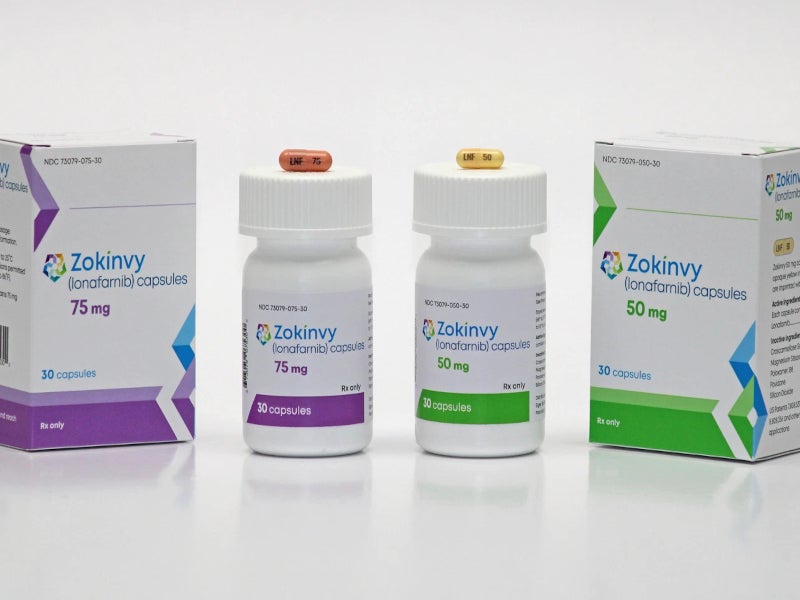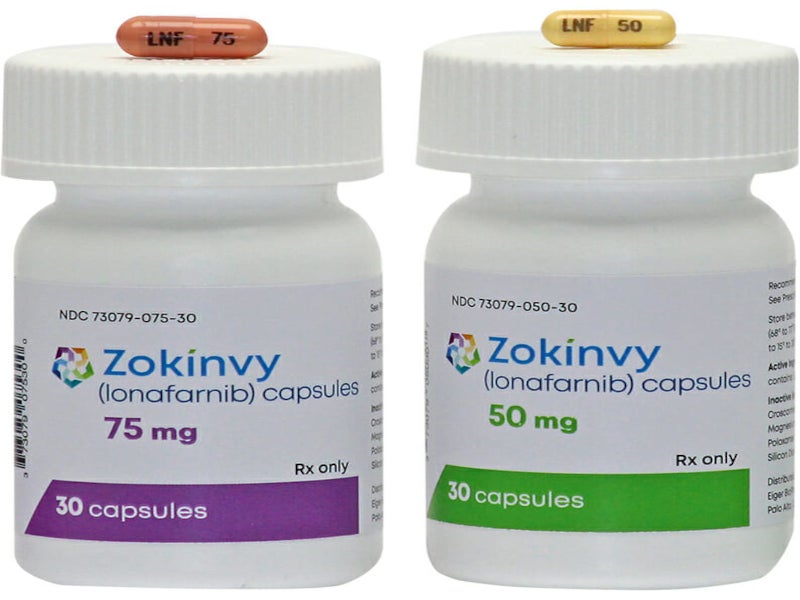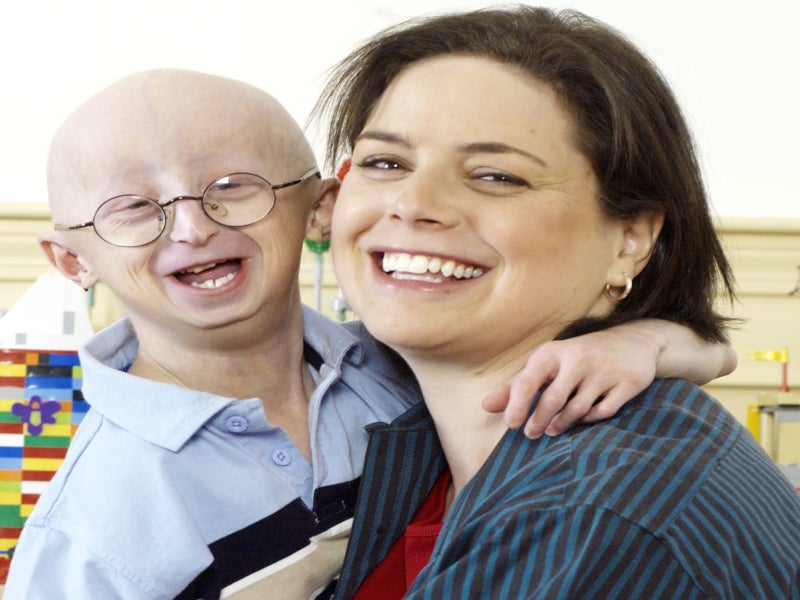Zokinvy (lonafarnib) is a first-in-class therapy indicated for the treatment of Hutchinson-Gilford progeria syndrome (HGPS) and processing-deficient progeroid laminopathies (PL), collectively called progeria, in patients aged one year and older.
Developed by Eiger BioPharmaceuticals, the breakthrough therapy showed a significant survival benefit in children and young adults with HGPS. Zokinvy was approved by the US Food and Drug Administration (FDA) under priority review designation in November 2020.
In May 2022, the European Medicines Agency’s (EMA) Committee for Medicinal Products for Human Use (CHMP) recommended the drug for the treatment of progeria. In the same month, Eiger entered a strategic partnership with Japanese biopharmaceutical company AnGes for the regulatory approval, marketing, and distribution of Zokinvy in Japan.
Zokinvy is available as capsules of 50mg (opaque yellow) and 75mg (opaque light orange) dosage strengths for oral administration.
Progeria causes and symptoms
HGPS and progeroid laminopathies are ultra-rare, fatal, genetic premature ageing diseases. Progeria occurs due to a mutation in the lamin A (LMNA) gene, which is crucial for holding the cell nucleus together. The mutation results in the formation of progerin, an abnormal form of the lamin A protein, which makes cells unstable.
HGPS is characterised by clinical features, including limited growth, and characteristic facial features such as a receding chin and a narrow, pointed nose, hair and body fat loss, crowded teeth, small and fragile bones, and joint stiffness. Most children affected by the disease die in their early teens due to severe cardiovascular complications.
Patients with progeroid laminopathies show physiological ageing features such as hair loss, short stature, cardiovascular disease, and osteoporosis.
Around 400 children live with progeria and 200 children with progeroid laminopathies worldwide.
Zokinvy’s mechanism of action
Zokinvy is a farnesyltransferase inhibitor. The inhibition of farnesyltransferase blocks the farnesylation and subsequent build-up of progerin and progerin-like proteins in cell nuclei, which promotes the maintenance of cell integrity and function.
Clinical trials on Zokinvy
Zokinvy’s effectiveness for treating progeria was demonstrated in the Observational Cohort Survival Study, which compared survival data between Zokinvy-treated HGPS patients and untreated patients in two Phase II studies.
Study I was an open-label, single-arm clinical trial that evaluated Zokinvy’s efficacy in 28 patients who received Zokinvy for 24 to 30 months.
A total of 26 patients who completed Study I were enrolled in Study II, which comprised two phases. In the first phase, patients received Zokinvy with additional therapies for around five years. In the second phase, patients received Zokinvy 150mg/m2 twice daily for up to three years. In addition, 35 untreated patients with HGPS were also enrolled in the second phase of Study II.
The findings of the retrospective survival analysis were based on the mortality data from 62 treated patients, including 27 patients in Study I and 35 untreated patients in Study II.
Zokinvy increased the mean lifespan of HGPS patients by an average of three months through the first three years of follow-up and two and a half years through the maximum follow-up time of 11 years, compared with untreated patients.
Zokinvy reduced mortality by 72% and increased survival time by at least 4.3 years on an average in patients with HGPS.
The most commonly reported adverse reactions in the patients were vomiting, diarrhoea, infection, nausea, decreased appetite, fatigue, upper respiratory tract infection, abdominal pain, musculoskeletal pain, electrolyte abnormalities, decreased weight, headache, myelosuppression, decreased blood bicarbonate, cough, hypertension, and increased alanine aminotransferase and aspartate aminotransferase.





